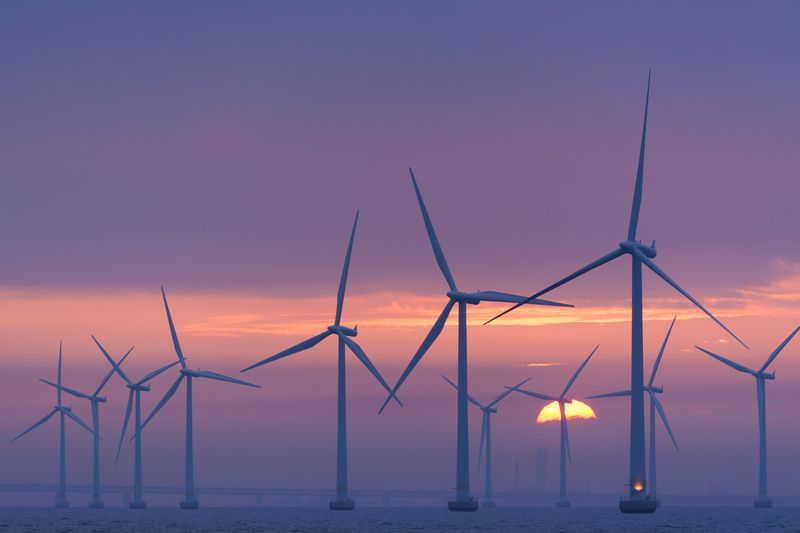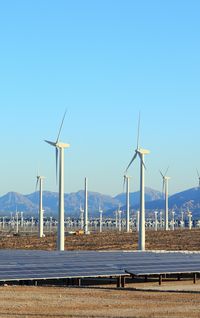Exciting times for the financing of renewable projects – Maersk green methanol, Baltic Wind, Zenobe, Gridserve, CfD 5 etc. CfD 5? Wasn't that the UK renewables auction that failed? Not quite. There were plenty of projects that won contracts, and indeed some in new sectors such as geothermal won through. But the big elephant in the room, the offshore wind sector, did not and there was much comment on missed opportunities and the need for reform of the system – although slightly less on reforming the sector itself.
One of the mantras of the renewables era has been "put the projects forward in ever growing numbers and costs will come down". Obviously, with the global inflationary spurts since the Covid lockdowns that is currently no longer the case. Offshore wind costs are said to be up 30%–40%. Solar prices had reached nearly US$0.01/kWh pre Covid and are now at US$0.014/kWh – although in the desert areas they are still pretty competitive. Onshore wind can come in at £72.35/MWh in the UK, as in CfD 5, below current market prices but still a 23% increase on the CfD 4 round last year.
Maybe the complete lack of bids for offshore wind in the long run will be a good thing. The industry reaction was to say the result was caused by government inaction. The government was told the proposed strike price was too low and it did not listen. Fair enough. It was clear to everyone, including presumably those in government, that the offshore auction would fail. But what was to be done, raise the strike price by say £25 as a time when the government has been directly subsiding customer bills for more than a year? Clearly, time for a rethink all around.
But September has been surprisingly optimistic in this new high construction, high interest rate environment, so it is time to celebrate and look forward.
Maersk green methanol? Indeed – shipping company Maersk has teamed up with its majority owner AP Moller to establish C2X, a company that will produce green methanol. The joint venture is said to have raised money for the enterprise, although it is not clear how much. The funding could be coming from AP Moller Capital, which is raising up to US$1.5bn for its new Emerging Markets Infrastructure Fund II to invest in critical transport infrastructure and renewable energy assets in Africa and South-East Asia.
Maersk will own 20% of the new company and is planning specific projects near the Suez Canal and the Port of Huelva in Spain. Exciting? Yes, moving the shipping industry to green methanol or indeed the rival green ammonia option will lead to big reductions in carbon and clean up the seas. What is more, it has many other uses and can be transported akin to LNG. But there are plenty of challenges. While the first ship has now been launched, green methanol is not freely available and it costs twice as much as methanol, although as a dual fuel option it is only 10% more expensive than fuel for conventional ships. If the green hydrogen/green ammonia/green methanol revolution is to take off, it will surely start here.
Baltic Wind? Indeed – an offshore wind farm that has been financed and the first in Poland! As 49% sponsor Northland Power gently pointed out "despite the recent challenges for the offshore wind sector in some markets..." A little understatement, particularly given Northland announced earlier this year Baltic's project costs had risen US$750m. The strike price on the CfD deal of US$73/MWh, "is euro-pegged and includes an inflation indexation feature commencing with a base year of 2021, providing offsetting benefits to the higher inflationary price pressures recently experienced". Interesting to know what the price is now given those inflationary pressures, but still raising €4.4bn of project finance at 5% in a new money is a decent effort.
Zenobe? What does Zenobe mean by the way, a character from the Magic Roundabout/Le Manege Enchante perhaps. No, apparently it means born of Zeus. Anyway, the highly British Nicholas Beatty was full of the joys when announcing £870m of new equity moving into the company via KKR and Infracapital. It was almost a throwback to a previous era when celebrating a business success, and indeed in this case a British business success, with nothing to apologise for was acceptable behaviour. The folk at Gridserve are perhaps a little more understated, but they have managed to raise £326m in new debt and £200m in new equity from Infracapital.
Both are in the electric vehicle sector – with Zenobe On the Buses and Gridserve On the Motorways – and both have storage and generation links. A decade ago neither existed. The sectors they operate in have their own challenges – EV is still pushing into the mainstream rather than being in the middle. There is some way to go but entrepreneurs are making it happen.










